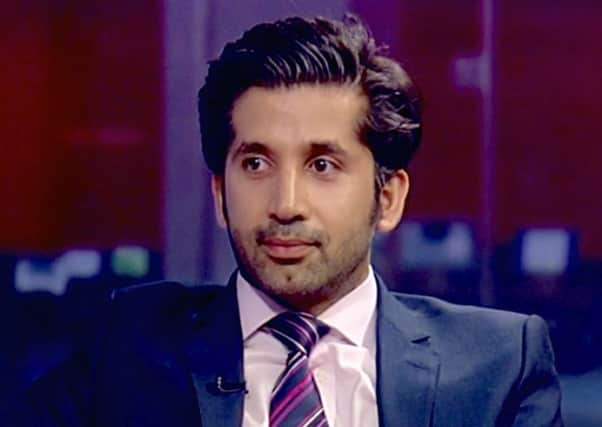Terrorists could target Britain warns Yorkshire security expert


Intelligence services are facing an ever-growing demand on their expertise to hunt down members of the IS terrorism network which has claimed responsibility for a succession of attacks across the world in recent months.
Dr Afshin Shahi, the director of the Bradford University-based Centre for the Study of Political Islam, claimed the fragmented nature of the IS organisation means that it is extremely difficult for security agencies to track down those behind the most recent atrocities - as well as those who are planning future attacks.
Advertisement
Hide AdAdvertisement
Hide AdHe said: “IS is evolving as an organisation at a very rapid rate, and it is clearly pursuing a campaign that is aimed at creating as much fear in communities across the Middle-East and the West as it can.
“It had previously been more concerned about the expansion of its territories in Iraq and Syria, but now in retaliation to the anti-IS coalition in Iraq and Syria, they are targeting their enemies in their own countries.
“This is not just about targeting France, this is a message to every country that is part of the anti-IS coalition.”
Dr Shahi claimed that Russia’s recent military intervention in Syria is likely to have been the motivation for what is widely-perceived to have been a terrorist plot to blow up the passenger plane that crashed in the Sinai after flying out of the Egyptian resort of Sharm el-Sheikh last month. All 224 people on board were killed, mostly Russian nationals.
Advertisement
Hide AdAdvertisement
Hide AdDr Shahi added: “You can see the tensions have been rising in countries such as the United Kingdom. In my opinion, I can quite easily see a similar attack happening in London or a major city in the UK, because it is so difficult to track the members of the organisation.”
He stressed that the circumstances of each attack needed to be taken into context, and warned against comparisons to the massacre at the offices of the Charlie Hebdo satirical magazine and shootings at a Jewish supermarket in Paris in January this year.
Dr Shahi claimed that both of those attacks had targeted specific sections of the Parisian society, with a magazine that had faced criticism for its parodies of religion and politics, as well as a supermarket serving the city’s Jewish community.
He maintained that last night’s attacks had been intended to cause as much fear among a far-wider section of French society.
Advertisement
Hide AdAdvertisement
Hide AdDr Shahi said: “He have to refrain from generalisation, as it is sometimes very tempting to try and create patterns in an attempt to explain what has happened.
“The circumstances of what happened in Paris last night are very different from what happened earlier this year. There are of course some similarities, but last night was about targeting an area that was a very mixed neighbourhood with a lot of young people enjoying a Friday night out.
“This is going to create a massive propaganda effect, with people now asking why has their country been targeted again, and asking whether their government should change its foreign policy and intervention in other nations like Iraq and Syria.”
The intelligence services in France have faced criticism today after they were unable to prevent a second wave of terrorist attacks in the nation’s capital city in the space of only 10 months.
Advertisement
Hide AdAdvertisement
Hide AdBut Dr Shahi claimed that the ability to track the terrorists was a huge challenge, due to IS having a loosely-based hierarchy and a fragmented structure spread across the globe. There has been a concerted effort by the terrorist organisation to promote the brand of IS to scattered networks of other extremists to aid its cause.
Dr Shahi said: “There are a host of reasons as to why Paris has been targeted again. There is a great deal of polarisation between Muslims and the wider communities, and a lot of tension. It may be as simple as the fact that the terrorists have been able to establish a better network in France than other countries, and the free movement around Europe into France has aided that.”
The Centre for the Study of Political Islam which is based at Bradford University will be officially launched next month at the House of Lords in London, although it has been operating since February this year. It is the first academic centre of its kind in the UK to study the various aspects of political Islam.